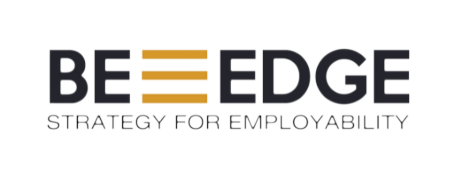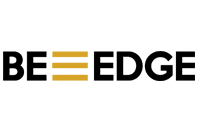
Personal Branding Strategy: 5 Steps to Unleash Your Unique Identity for Career Success
by BE-EDGE team
In today’s competitive job market, personal branding has become a crucial element in career development and achieving career success. Your personal brand is a reflection of your unique identity, skills, and values, and it plays a significant role in shaping how others perceive you. In this blog, we will delve into the realm of personal branding strategy, empowering you to unlock your full potential and make a lasting impression in your professional journey.
1. Brand Identity:
Your brand identity is the foundation of your personal brand. It encompasses your values, passions, strengths, and expertise. To build a strong brand identity, you need to:
- Self-reflect: Take the time to introspect and identify your core values, interests, and the skills that set you apart from others. What makes you unique and valuable in your field?
- Define your target audience: Identify the specific audience or industry you want to target. Understanding your audience’s needs and preferences will help you tailor your personal brand effectively.
- Craft your brand statement: Create a concise and compelling brand statement that encapsulates who you are, what you offer, and the value you bring to employers or clients.
For example, a brand statement for a marketing professional could be: “I am a results-driven marketer with a passion for storytelling and leveraging data insights to create impactful campaigns that drive business growth.”
2. Online Presence:
In the digital age, your online presence plays a significant role in shaping your personal brand. Consider the following strategies to optimize your online presence:
- LinkedIn: Create a professional LinkedIn profile that showcases your skills, experiences, and achievements. Engage in industry groups, share relevant content, and actively network with professionals in your field.
- Personal website or blog: Establishing a personal website or blog allows you to showcase your work, share your insights, and demonstrate your expertise. This platform gives you full control over your brand messaging and allows potential employers or clients to learn more about you.
- Social media strategy: Leverage social media platforms, such as Twitter or Instagram, to establish your personal brand. Share industry-related content, engage in meaningful conversations, and curate a consistent brand image across platforms.
3. Networking and Relationship Building:
Networking is a powerful tool for personal branding. It helps you build connections, expand your professional network, and open doors to new opportunities. Consider these networking strategies:
- Attend industry events: Actively participate in conferences, workshops, and networking events to meet professionals in your field. Be prepared to introduce yourself and articulate your personal brand effectively.
- Online networking: Utilize social media platforms, professional forums, and industry-specific online communities to connect with like-minded professionals. Engage in discussions, offer insights, and build relationships.
- Informational interviews: Request informational interviews with professionals in your desired industry or roles. This allows you to learn from their experiences, gain industry insights, and potentially establish mentorship relationships.
4. Communication and Messaging:
Effective communication is essential for personal branding. Your ability to articulate your brand message with clarity and confidence can significantly impact how others perceive you. Consider these communication strategies:
- Elevator pitch: Craft a concise and compelling elevator pitch that succinctly communicates your unique value proposition, skills, and career goals. This pitch should capture attention and leave a memorable impression.
- Storytelling: Share compelling stories that highlight your achievements, challenges overcome, and lessons learned. Storytelling creates an emotional connection and reinforces your brand identity.
- Professional communication: Maintain professionalism and consistency in your written and verbal communication. Whether it’s in emails, presentations, or networking conversations, ensure your messaging aligns with your brand identity.
5. Brand Reputation Management:
Managing your brand reputation is crucial for long-term success. Your reputation is built on your actions, interactions, and the quality of work you deliver. Consider these strategies for brand reputation management:
- Consistency: Consistently deliver high-quality work and exceed expectations. Consistency builds trust and reinforces your brand identity.
- Building credibility: Seek opportunities to showcase your expertise, such as speaking engagements, publishing articles, or participating in industry panels. Establish yourself as a thought leader in your field.
- Seek feedback and testimonials: Actively request feedback from colleagues, clients, or supervisors to continually improve and demonstrate your commitment to growth. Positive testimonials can further enhance your brand reputation.
Conclusion:
In the ever-evolving professional landscape, personal branding is a powerful tool that can set you apart and propel your career forward. By defining your brand identity, optimizing your online presence, networking strategically, honing your communication skills, and managing your brand reputation, you can unleash the full potential of your personal brand. Embrace the uniqueness that defines you and create a lasting impact in your professional journey. Your personal brand is your ticket to success.
Read the next article: Job Search Tactics


